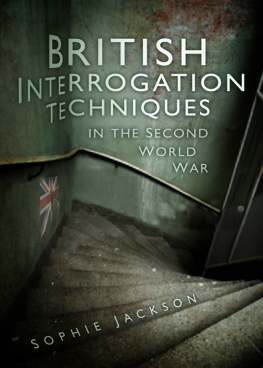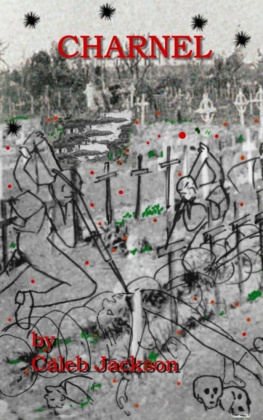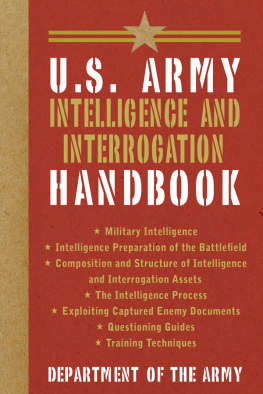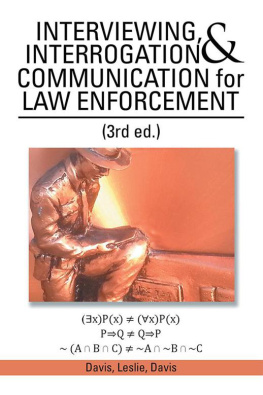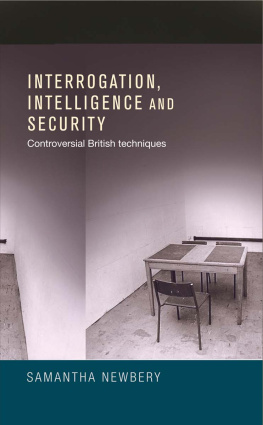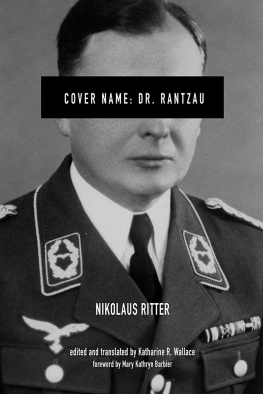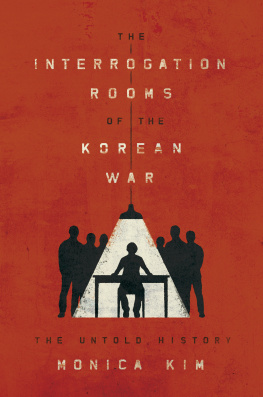C ONTENTS
A war can be won or lost on information. Believing the wrong rumour or disbelieving the right one can have devastating effects on a countrys war effort.
Yet the intelligence network of Britain was a late bloomer. First used to great effect in the First World War, between the wars, what would become MI5 was dismantled, disregarded and disposed of. When the Second World War broke out there was a scramble not only to re-enlist useful intelligence men from the last war, but to find new candidates.
The result was that the first organised British intelligence agency began to take shape. The British were novices at the spy game, though fortunately so were the Germans. Blunders and mishaps marred the early days, but with the urgency of war people quickly honed their skills and soon Britains secret service was not only impressing Churchill, but also our enemies in Germany.
The highest compliment our system received at the time came when German interrogators chose to adopt some of our techniques when interviewing enemy prisoners and spies.
What shone out in the eyes of the Germans were our methods of interrogation. We seemed to have ways of wheedling the smallest detail from men and then turning it against them. Franz von Werra, the famous Nazi escapee, would be stunned to discover how much his British captors knew about him; down to his pet lion cubs name and an injury to his finger.
But none of this happened over night. Techniques developed and were often adapted from disastrous mistakes. Departments were created and staffed by a close-knit team of men and women, but often they fell prone to rivalries with other teams and constant backstabbing dangerously undermined successes. Spies were turned or executed. Prisoners were wrung for useful military secrets. Alien civilians were examined for potential treachery, and all this largely on an ad hoc basis.
Without the men and women who spent those war years examining reams of information and sorting the useful from the irrelevant, talking to endless captives, listening for hours to hidden microphones to catch a snippet of useful knowledge, Britain could have easily lost the war. Yet while spies and espionage have often been glamorised and portrayed in film and television, the quiet work of the interrogators has largely been forgotten outside of academic tomes.
Although it may not at first seem as thrilling as spying or sabotage missions, a spy, at the end of the day, is only a man relaying information a man who must rely for his own safety on those interrogators working in cramped rooms night and day gathering reliable information.
The story of interrogation has been sidelined, yet the interrogators were the true heroes of the intelligence game, without whom no spy could have succeeded, no military deception would have been believed and no army could have marched secure in the knowledge of where the enemy was. Indeed, it could be argued that interrogation was the key to winning the war.
1
Imagine a small cell, painted in uniform grey, the only furniture a heavy table and two chairs opposite each other. A bare bulb swings from the ceiling and minimal light comes in from a heavily barred window. A man (or woman) is escorted into the room by unsympathetic guards who deposit their charge in the nearest chair. In the far chair an unassuming man sits, perhaps bespectacled, but always with a calculated smile and a file of papers before him.
He sets forth a series of questions to his prisoner, which are stonily ignored so, with a grin, he begins describing various tortures and, when his victim continues to withhold their information, he sets about acting upon his threats. A huge number of Hollywood movies, television dramas and books can now fill in the gaps when it comes to the imaginative tortures inflicted on our hero, whether they are a spy, criminal or a Second World War soldier.
This is the typical image the word interrogation brings to mind; a picture reinforced by recent revelations of Guantanamo Bay and popular media. It has become stereotypical that should any hero, real or fictional, be captured, they should expect physical torment, and that image is strongest from the Second World War, with Germans usually portraying the evil interrogators.
Ironically, however, torture was not as prolific in the war, either on British or enemy soldiers, as is commonly portrayed. There is no denying it occurred, but the evidence for it being a universal practice in the
Torture was therefore viewed as the tool of amateurs or the inefficient. What reliability could be placed in the words of a man who has been made to confess under physical duress? It is an age-old question that has been asked time and time again, whether during the seventeenth century witch trials or the early days of interrogation in the First World War.
These views were not the enlightened opinions of peaceful men who abhorred violence, however, they were ideas bred from practicality. Stephens knew what others would come to realise: torture provoked easy answers, but not necessarily true ones. It was considered a great failing of the German intelligence services that they relied so heavily on blackmail and violent threats to gain information and recruit spies. Those same spies were so easily turned by their British interrogators that it was almost laughable; once out of the clutches of their Nazi masters they willingly divulged their missions.
Unfortunately. a minority did not share Stephens views. The London Cage, headed by Lieutenant Colonel Scotland, became infamous for its supposed use of physical torture, and even Stephens detested his counterpart Scotland, who was banished from Camp 020 after hitting a recalcitrant suspect over the head.
The same applied in Germany; there was no universal code for extracting information in either countries, and both British and German interrogators were free from limitations other than those of their conscience or pragmatism. The cases of Bad Nenndorf, mentioned in a later chapter, show that the British could equal the Gestapo and Nazi concentration camps for violence and lack of humanity.
While for the British these detestable practices were the rarity, it was often the reverse in Germany. Why these two countries diverged in their information gathering is as much a case of culture as a case of the fledgling system of intelligence gathering. The early history of spying is vital to the understanding of the interrogators role and attitude.
How to Build an Intelligence Service
It is strange to realise that intelligence gathering as an organised body is really the creation of the twentieth century. The game of spying is as old as civilisation, but the organised compiling of the information these men and women found, and the interrogation of enemy agents, is relatively new. Prior to Queen Elizabeth I diplomats or courtiers were expected to pick up useful information from reliable sources and pay for it out of their own purse. It was not exactly a system and certainly not efficient or reliable. That all changed with the appointment of Sir Francis Walsingham in 1573, the iconic spymaster who excelled at the game of information gathering.
Walsinghams greatest triumph was successfully ending the war against Spain and the defeat of their armada, in part achieved by his intelligence network. Unfortunately his success was spyings downfall, and the lack of a significant enemy threat made intelligence gathering rather redundant. Throughout the history of the intelligence game it has always been the case that in peace it is neglected, only for that neglect to be regretted when another war threatens seemingly out of nowhere. Various leaders failed to realise this lesson. Cromwell employed spies to gather news on Catholic Spain before attacking them, and then proudly declared his superior intelligence system had enabled the victory. Yet once again, as soon as conflict ended the system was disbanded.

